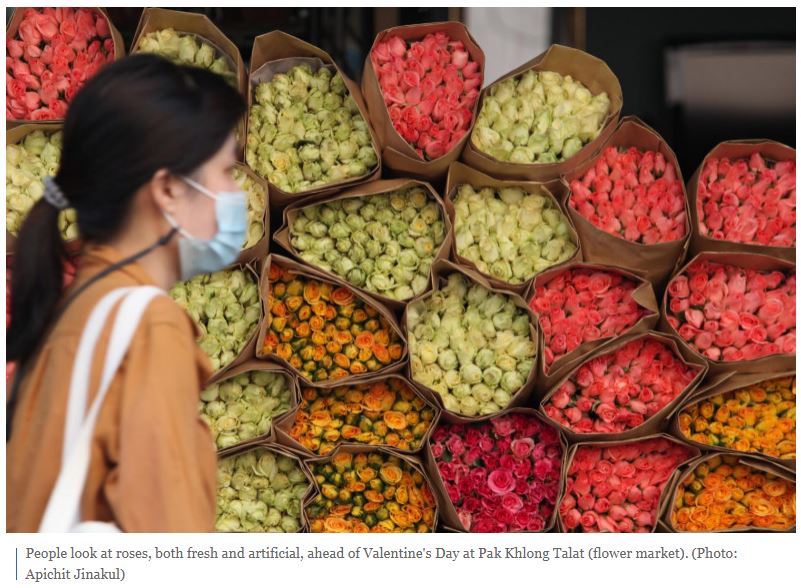Thailand: Valentine’s spending to hit B2.39bn
Spending on Valentine’s Day this year is projected to top 2.39 billion baht, jumping 57.1% from last year and the first increase in five years, according to a University of the Thai Chamber of Commerce (UTCC) survey.
UTCC president Thanavath Phonvichai said Valentine’s Day spending this year is forecast to be active, even as most people remain cautious about spending with the relatively high cost of living and recent celebrations for New Year and Lunar New Year.
Mr Thanavath said spending next year is expected to be more active than in 2023, accelerated by expectations of a continued economic recovery.
The study, which surveyed 1,225 people nationwide, found spending on Valentine’s Day is expected to average 1,848 baht per person, up from 1,176 baht last year, with most of the money being spent on gifts, dining out, flowers and movies.
He said headline inflation, which rose 5.02% year-on-year in January, indicated higher consumer spending in line with a recovering economy. Mr Thanavath said the Bank of Thailand is expected to continue raising the policy rate the remainder of the year in an effort to tame inflation.
The UTCC forecasts economic growth of 3.5-4% this year, driven by an anticipated surge in foreign tourist arrivals, especially from China, along with a general election scheduled for the second quarter.
The university estimates 5 million Chinese tourists will arrive in the second quarter, with Chinese arrivals for the year tallying 7-8 million, bringing the total number of foreign arrivals to 26-27 million this year.
The UTCC expects the election to generate 40-50 billion baht in spending, raising economic growth by 0.3 percentage points.
In a separate development, Internal Trade Department director-general Wattanasak Sur-iam said the Commerce Ministry called for cooperation from producers to continue maintaining product prices for a period to alleviate the financial burden on consumers while the domestic economy recovers.
“The department monitored the prices of consumer products and found many, such as pork, chicken, eggs and palm oil, have declined,” he said. “Packed rice and canned food maintained their prices despite higher raw material costs.”
Beverage producers asked to raise their prices because of rising production costs, but Mr Wattanasak said the department held discussions with producers and related associations, reaching an agreement to maintain prices, with a focus more on effective cost management. He said recovering tourism and higher consumption is easing pressure on producers.
Source: https://www.bangkokpost.com/business/2501401/valentines-spending-to-hit-b2-39bn


 Thailand
Thailand




